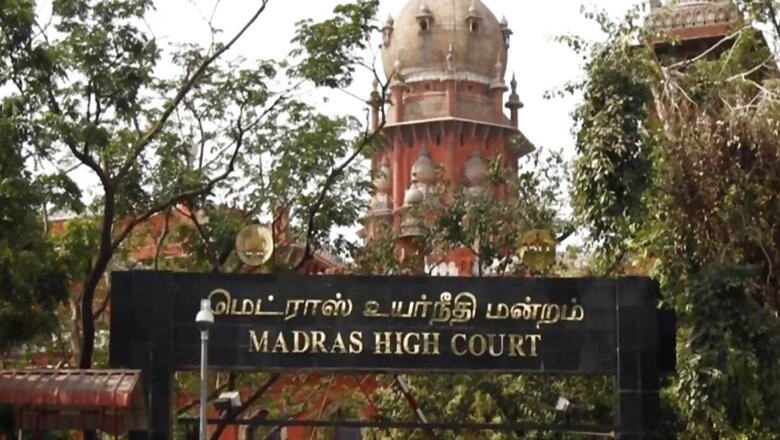
views
The Madras High Court recently observed that a prisoner and his fundamental rights do not part ways at the prison gates. The court said so while granting 40 days’ ordinary leave from prison to a murder convict. The man was convicted of murder in 1998. Originally, he was awarded capital punishment. However, the President in a mercy plea modified it to life imprisonment.
The man remained incarcerated since 1994. In these 29 years, he went on leave multiple times.
On July 28, 2023, he sought 40 days of ordinary leave on two grounds: (a) to make arrangements for the admission of his two children in B.E., and M.E. courses, and (b) to repair his homestead.
However, the representation sent by him to the prison authorities remained unattended. Consequently, he approached the high court, seeking direction for the prison authorities to grant him the leave.
The high court said that in view of the facts and the trajectory of the matter, including the trajectory of incarceration of the convict for nearly three decades, it was of the opinion that the convict’s representation had to be acceded.
The court stressed that, firstly, the reasons given for the leave request snugly fit into sub-clauses (ii) and (iii) of Rule 20 of the Tamil Nadu Suspension of Sentence Rules 1982 captioned ‘Grounds for the grant of ordinary leave’ and, secondly, on all 15 occasions when the convict was granted leaves, nothing untoward had happened and he had returned and surrendered on the leave period elapsing.
Further, the court pointed out that the report of the jurisdictional probation officer did not say anything adverse and it only said that it was desirable to grant 40 days’ leave with escort.
The HC found the reasons for leave as given by the convict “very compelling”.
Apart from that, the court underscored that the Tamil Nadu Suspension of Sentence Rules 1982 is a piece of subordinate legislation, which did not go through the grind of lawmaking in the legislature.
“Therefore, this piece of Subordinate Legislation is only a codified guideline for the Executive to deal with requests for leave from prisoners and it cannot abridge Constitutional powers which this Court is exercising,” said the HC.
Keeping this in view, exercising its constitutional powers, the court granted 40 days’ ordinary leave with escort to the convict.
However, the court clarified that the convict shall utilise the leave only for the purpose given by him and not partake in any other activities. “Writ petitioner being granted leave with escort does not mean that writ petitioner will be confined in his house and it shall not be treated as house arrest,” it further mentioned.




















Comments
0 comment